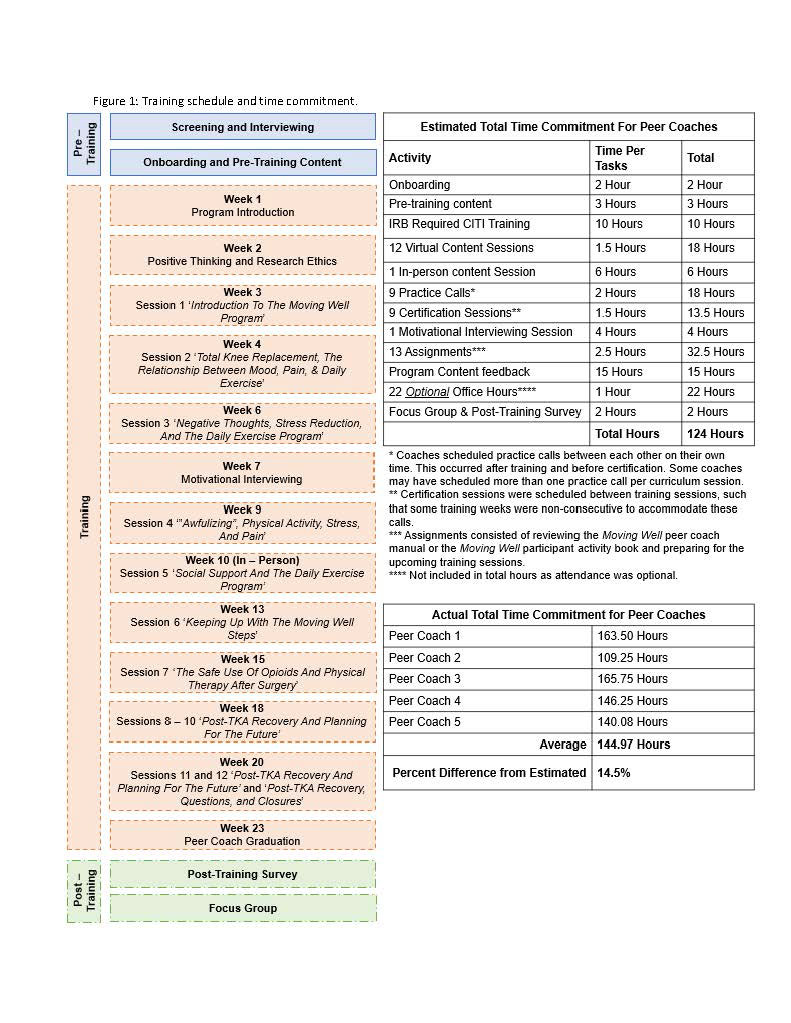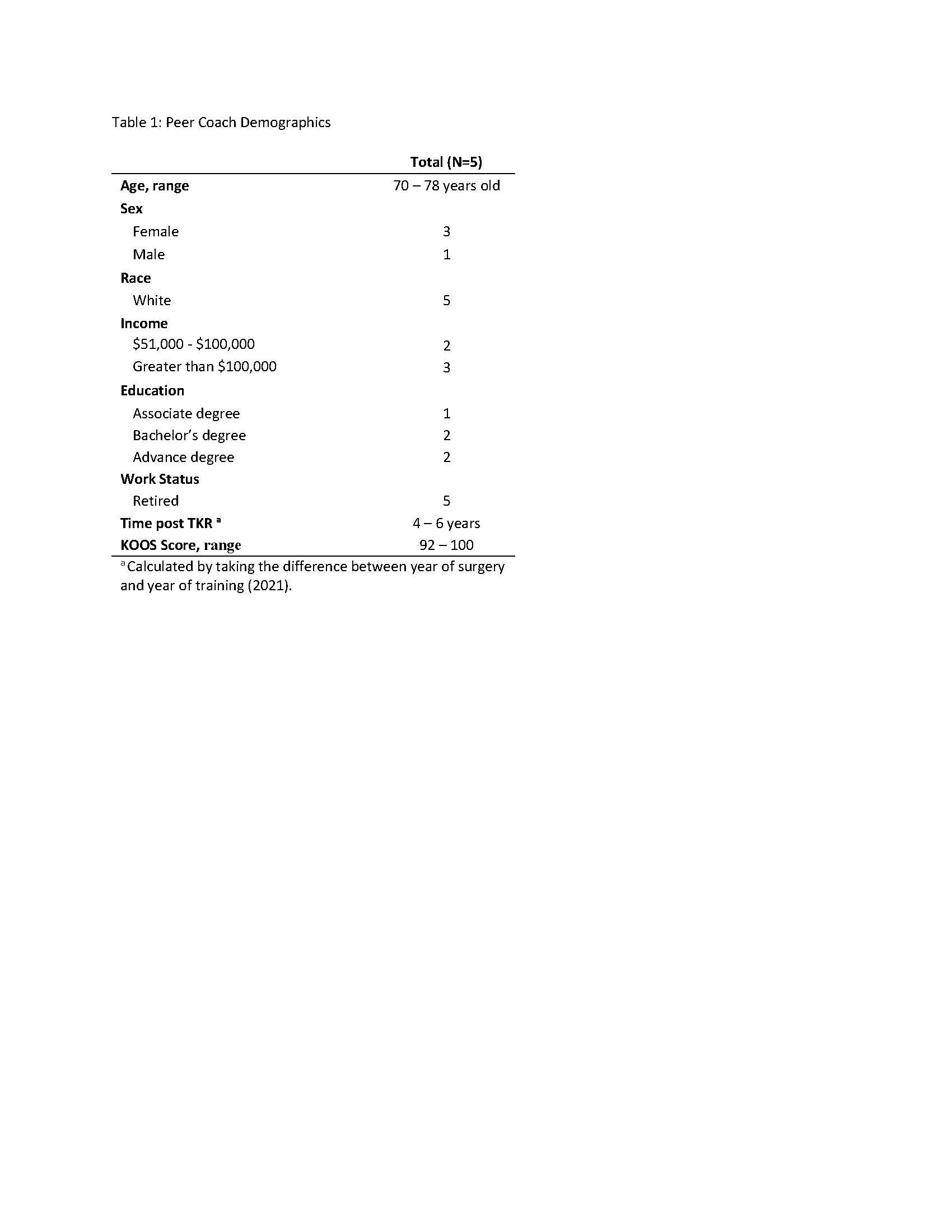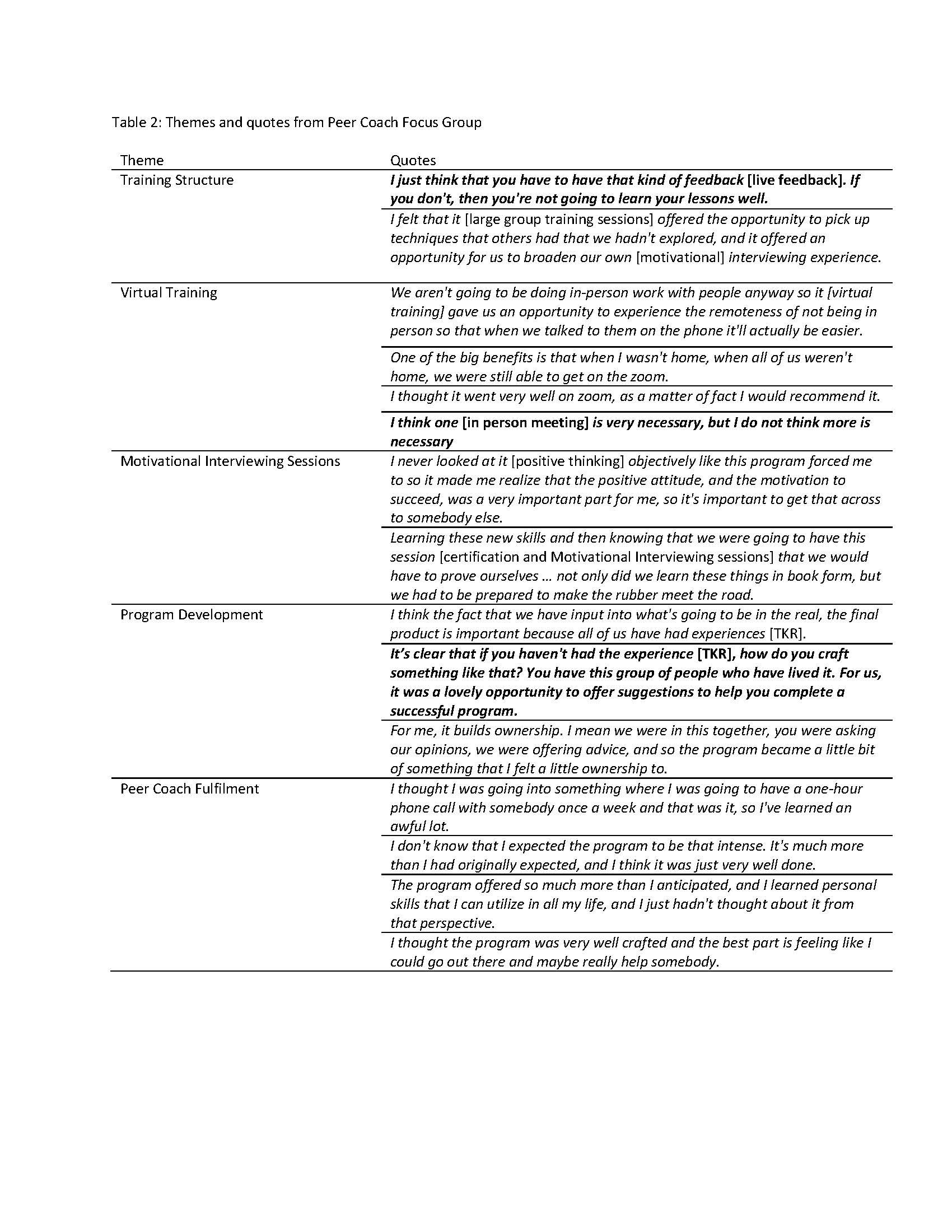Session Information
Session Type: Poster Session A
Session Time: 1:00PM-3:00PM
Background/Purpose: Up to 30% of patients with advanced knee osteoarthritis (KOA) experience knee pain after recovering from Total Knee Replacement (TKR). Studies suggest that high levels of anxiety and depression (A&D) are linked to post-TKR pain. Our study delineates the training of peer coaches (PC), lay individuals who had successful TKR, to deliver the Moving Well (MW) Intervention. MW was created to lower levels of A&D pre-TKR through physical and mental preparation. PC were trained to deliver the MW intervention and use supportive listening and motivational interviewing (MO-INT) techniques to help participants manage challenges throughout their TKR preparation.
Methods: We recruited and trained people that were ≥ 60 years of age and had successful TKR due to KOA, defined as their Knee Injury and Osteoarthritis Outcome Score (KOOS). Training consisted of participant and coach role-playing between PC and the research team, Mo-INT skills training, and lessons on supportive listening. After each training session, PC practiced delivering the intervention content to a research team member who portrayed challenging scenarios. PC were evaluated by the research team and received feedback on their performance after each certification training. To guarantee fidelity, PC completed a checklist of discussion points for each session. They completed a post-training survey and participated in a focus group to evaluate their training.
Results: The PC training program was completed by 3 females and 2 males with KOA and history of TKR (Figure 1). PC were all white, retired, between 70 to 78 years old, and had KOOS ranging from 92-100 (Table 1). PC found the program to be intense and longer than expected (Table 2). However, PC felt that only people who have experienced TKR were qualified to complete and deliver the intervention. At the start of training, PC had challenges with learning MO-INT skill virtually. For this reason, the research team adapted the training to include an in-person session. PC agreed that this was critical in their learning, with the research team noting an increased level of MO-INT proficiency. Lastly, the research team’s flexibility to meet with PC, satisfy their needs, as well as PC continued collaborations on content development and training structure helped PC feel ownership of both the intervention and training.
Conclusion: Successfully training PC in the MW intervention required: flexibility in the training schedule, open communication, inclusion of PC in the refinement of the intervention. Taking these aspects into consideration are important to guarantee success in the training of PC in behavioral interventions, their proficiency as peer coach, and guarantee patient centeredness.
To cite this abstract in AMA style:
Domínguez Páez Y, Brown M, Jabri A, Creasman M, Kasturi S, Safford M, Navarro-Millan I. “The Best Part Is Feeling Like I Could Go out There and Maybe Really Help Somebody”: Training Peer Coaches to Deliver the Moving Well Total Knee Replacement Telephone-Based Coaching Program [abstract]. Arthritis Rheumatol. 2022; 74 (suppl 9). https://acrabstracts.org/abstract/the-best-part-is-feeling-like-i-could-go-out-there-and-maybe-really-help-somebody-training-peer-coaches-to-deliver-the-moving-well-total-knee-replacement-telephone-based-coaching-pr/. Accessed .« Back to ACR Convergence 2022
ACR Meeting Abstracts - https://acrabstracts.org/abstract/the-best-part-is-feeling-like-i-could-go-out-there-and-maybe-really-help-somebody-training-peer-coaches-to-deliver-the-moving-well-total-knee-replacement-telephone-based-coaching-pr/



